Rosicrucians
Bulwer-Lytton, Sir Edward *
Sir Edward Bulwer-Lytton (1803–1873) was a British politician and 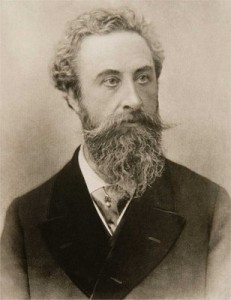 novelist. He coined a number of phrases that are still in use today; ‘the great unwashed’, ‘the pen is mightier than the sword’ and ‘pursuit of the almighty dollar’(f). The last is from his 1871 science fiction novel, Vril: The Power of the Coming Race[1336], which describes an underground race of superior beings with advanced powers.
novelist. He coined a number of phrases that are still in use today; ‘the great unwashed’, ‘the pen is mightier than the sword’ and ‘pursuit of the almighty dollar’(f). The last is from his 1871 science fiction novel, Vril: The Power of the Coming Race[1336], which describes an underground race of superior beings with advanced powers.
I have been reminded by Ronan Coghlan that the beef extract, Bovril, developed in the 1870s, had used ‘vril’ as part of its name to imply ‘bull-power’!
He was adopted by English Rosicrucians as their ‘Grand Patron’. The influence of Bulwer-Lytton extended to Helena Blavatsky who “compared Vril with the sidereal force of the Atlanteans, called Mash-Mak.” (e)
William Scott-Elliott took Bulwer-Lytton’s ideas seriously and has shown their influence in his references to Atlantis. In the early part of the 20th century, this fictional concept of vril was incorporated into esoteric Nazism, including the work of Brazilian right-winger, Gustavo Barosso.
Even today there is a so-called Church of Vrilology(b), which includes belief in a Black Sea location for Atlantis!(c)
On a lighter note, Bulwer-Lytton’s name has been given to a competition(d) that “challenges entrants to compose the opening sentence to the worst of all possible novels.” There have been many worthy winners.
(b) Church of Vrilology, Robert Blumetti, Balder Rising, Baldur, Odin, Wotan, Woden, Vril (archive.org)
(c) https://web.archive.org/web/20130108091223if_/http://www.vrilology.org/Atlantis_page.htm
(d) Home | The Bulwer Lytton Fiction Contest (bulwer-lytton.com)
(e) Fortean Times No.303 July 2013 p.43
(f) Edward Bulwer-Lytton – Wikipedia *
Spence, Lewis
James Lewis Thomas Chalmers Spence (1874-1955) attended Edinburgh University, after which he began a career in journalism that included a stint as sub-editor of The Scotsman. His book publishing began in 1908 with the first English translation of the sacred Mayan book Popul Vuh [257], followed by A 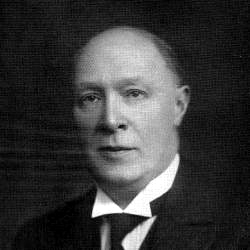 Dictionary of Mythology, so eventually, he had over forty works to his name. He was a keen Scottish Nationalist and stood for parliament in 1929. He was a founder member of the political movement that later evolved into today’s Scottish National Party (SNP).
Dictionary of Mythology, so eventually, he had over forty works to his name. He was a keen Scottish Nationalist and stood for parliament in 1929. He was a founder member of the political movement that later evolved into today’s Scottish National Party (SNP).
Among his literary output, which included mythology, occultism and poetry, were five books relating to Atlantis [256,258,259,260 262]. In 1932 he was editor of the Atlantis Quarterly magazine. He corresponded with Percy Fawcett and Sir Arthur Conan Doyle, advising the latter on the subject of Atlantis preceding the writing of The Maracot Deep and recently republished as Atlantis – Discovering the Lost City [235], another example of cynical publishing!
Spence at one point became the Chosen Chief of British Druidism and there is a claim that he was a member of at least one continental Rosicrucian organisation, although this report may be the result of confusion with H. Spencer Lewis, an American Rosicrucian. In 1941 he wrote [261] about the occult and the war, then raging in Europe. In that book he argued that the war was the result of a satanic conspiracy centred in Munich and the Baltic States. The following year he wrote [262] of his view that Atlantis had been destroyed as a form of divine retribution and that Europe was in danger of a similar fate.
His books were very popular with the general public but scorned by the scientific establishment, whom Spence mockingly referred to as “The Tape Measure School”. In truth his theories relating to Atlantis were highly speculative and often based on rather tenuous links. Spence believed that Atlantis was situated in the Atlantic and linked by a land bridge with the Yucatan Peninsula and that after the destruction of Atlantis, 13,000 years ago, the Atlantean refugees fled across this landbridge and are now recognised as the ancient Maya. A recent website(d) supports the idea of a landbridge from Cuba to the Yucatan Peninsula.
Spence believed that the ancient traditions of Britain and Ireland contain memories of Atlantis. An article of his on the subject can be found on the Internet.>>In a 1926 article in The Occult Review Spence identified Arthurian Avalon as Plato’s Atlantis(b).<<
In The Problem of Atlantis [258.205] Spence quoted a report that allegedly came from the Western Union Telegraph Company, which claimed that while searching in the Atlantic for a lost cable in 1923 that when taking soundings at the exact same spot where it had been laid twenty-five years before they found that the ocean bed had risen nearly two and a quarter miles. The account was quoted widely; however, not long afterwards, Robert B. Stacy-Judd made direct enquiries of his own to Western Union and the U.S. Navy, who denied knowledge of any such report[607.47]! It would be interesting to know the source of this ‘fake news’.
Spence’s The History of Atlantis [259] can now be downloaded or read online(c). In this book Spence offers his own composite translation of the Atlantis texts based on the English and French translations of Jowett, Archer-Hind, Jolibois and Negris.
A 2005 edition of the book from Barnes & Noble has an introduction by Professor Trevor Palmer.
Sprague de Camp in his Lost Continents [194] chose Spence as one of “the few sane and sober writers on the subject” of Atlantis and then proceeded to debunk much of what Spence wrote. [p.95].
It appears that among others, Spence’s work inspired the backdrop to a number of works by the pulp fiction writer, Robert E. Howard(e), who is perhaps best known as the creator of Conan the Barbarian.
(b) The Occult Review, Vol. XLIII No.1, Jan.1926 *
(c) https://www.archive.org/details/historyofatlanti00spenuoft
Rosicrucians
Rosicrucians were an obscure secret society that emerged in Germany during the 17th century. Nevertheless, earlier individuals have been identified as Rosicrucians such as the Swedish Runic scholar Johannes Bureus (1568-1652) and the alleged founder of the order, John Dee. Some have pushed the beginnings back to the 15th century(b).
Although there are modern ‘Rosicrucian’ groups, the origins of these bodies are rarely traceable beyond the 19th century despite their claims to a lineage that stretches back to ancient Egypt and Atlantis. The basis for such claims is at best imaginary but generally accepted as fraudulent. The Rosicrucians have also been linked with the Holy Grail, a subject that has received greater public interest since the publication of Dan Brown’s The DaVinci Code.
A 1934 extract(c) from the Rosicrucian Digest reveals their thinking at that time.
A 2006 edition(a) of Rosicrucian Digest gives an overview of the search for Atlantis at that point in time.
Lewis Spence, an early 20th-century atlantologist, was a member of a European Rosicrucian order.
>A recent development in Rosicrucian thinking is the idea of extraterrestrial intervention in the affairs of man from early times including our creation – “The knowledge of the Atlanteans came from another galaxy and was brought by those who became the first rulers of Atlantis. Some of these extraterrestrials returned to their home, others remained on earth to carry out a mission, all of the world’s civilizations come from this second group.” Bernard Raymond – L’empire Invisible(d).<
(a) https://www.rosicrucian.org/rosicrucian-digest-atlantis
(b) http://www.unexplainedstuff.com/Secret-Societies/The-Rosicrucians.html
(c) http://rosicrucian.50webs.com/rml/rml-lemuria-legend-or-fact.htm
(d) Rosicrucians’ Secret Knowledge Of Extraterrestrial Visitations – In5D : In5D *
Bureus, Johannes Thomae Agrivillensis
Johannes Thomae Agrivillensis Bureus (1568-1652) was a Swedish 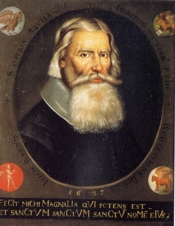 scholar who was one of the first to scientifically study the Scandinavian runes and was greatly involved in the early Rosicrucian movement in Sweden. He believed that Atlantis was the ‘original land’ and that in fact this had been Sweden. This idea was expanded on a few decades later by Olaf Rudbeck, who produced an extensive work on the subject. Bureus is seldom mentioned today in connection with Atlantis.
scholar who was one of the first to scientifically study the Scandinavian runes and was greatly involved in the early Rosicrucian movement in Sweden. He believed that Atlantis was the ‘original land’ and that in fact this had been Sweden. This idea was expanded on a few decades later by Olaf Rudbeck, who produced an extensive work on the subject. Bureus is seldom mentioned today in connection with Atlantis.
Freemasonry
Freemasonry has had its origins clouded in the mists of time and accordingly many researchers have attempted to push its beginnings 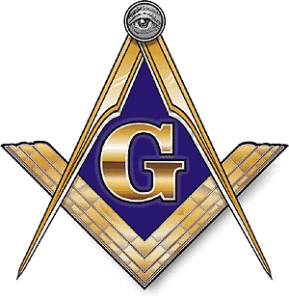 back to ancient Egypt, while others have gone further and claimed that Egypt had been colonised by refugees from Atlantis bringing with them the fundamentals of freemasonry!
back to ancient Egypt, while others have gone further and claimed that Egypt had been colonised by refugees from Atlantis bringing with them the fundamentals of freemasonry!
A recent book, Mysteries and Secrets of the Masons by Lionel and Patricia Fanthorpe[655], has a chapter entitled Masonic ideas about Atlantis nd Lemuria in which the authors claim that ‘here again Atlantis is rich in Masonic allegory and symbolism’. I hope it is reasonable to point out that symbolism, like beauty, is in the eye of the beholder. This extract can be read online(a).
Freemasonry is not alone in having an Atlantean ancestry attributed to it. A number of other societies and cults such as the Rosicrucians(b) , Theosophists(c) and Knights Templar(d) have all had a link with Atlantis claimed for them in a desperate attempt to underpin their legitimacy.
However, we must not forget how German Nazis also claimed a similar ancestry as part of their desperate attempts to justify their racist policies.
In 2010, American freemasonry was reported to be at its lowest since 1924(e).
(b) https://www.sacred-texts.com/sro/sdr/sdr02.htm (p.18)
(d) See Archive 3543
Dee, John
Dr John Dee (1527-1608) was born in London of Welsh parentage. Although he was a polymath, he was never a doctor. He was reputed to have had the largest library in England at that time, holding 3,000 books and 1,00 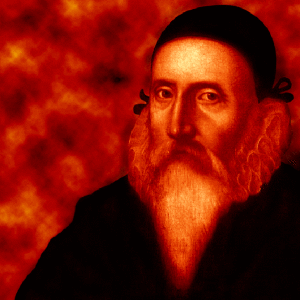 manuscripts. Dee was court astrologer to both Mary Tudor and Queen Elizabeth I and it is widely believed that he was the founder of the Rosicrucian Order. His principal published work is Monas Hieroglyphica (1564). Dee is also credited with coining the phrase ‘Brytish Impire’.
manuscripts. Dee was court astrologer to both Mary Tudor and Queen Elizabeth I and it is widely believed that he was the founder of the Rosicrucian Order. His principal published work is Monas Hieroglyphica (1564). Dee is also credited with coining the phrase ‘Brytish Impire’.
Some consider that Dee’s life had been the inspiration for the work of a number of his literary contemporaries, including two plays, Doctor Faustus by Christopher Marlow and The Tempest by William Shakespeare.
Further information about Dee is available on a dedicated Internet site(a) and a 2015 reappraisal of his life can be read on another(b).
Dee, like many others, was convinced that the newly discovered American continent was in fact Atlantis and prepared a map of the New World for Queen Elizabeth I with one side marked Atlantis. This view he shared with Francis Bacon.*Until Dee, Atlantis speculation had been centred on Spanish Central America, but Dee moved it into British territory in North America.*
(b) https://boingboing.net/2015/02/19/john-dee-was-the-real-life-mer.html
